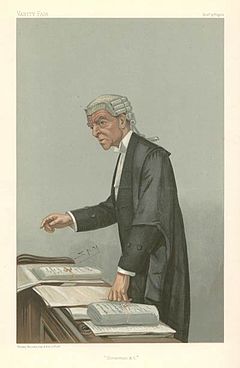
Back Cwnsler y Brenin Welsh King's Counsel Danish Kronanwalt German Consejero del rey Spanish King’s Counsel Finnish Conseiller du roi (Commonwealth) French Abhcóide an Rí Irish King's Counsel Italian 왕실 고문 Korean Conselheiro do Rei Portuguese
This article needs attention from an expert in United Kingdom. The specific problem is: The Northern Ireland section has had dubious tags since 2009. (June 2024) |

A King's Counsel (post-nominal initials KC) is a senior lawyer appointed by the monarch (or their viceregal representative) of some Commonwealth realms as a "Counsel learned in the law". When the reigning monarch is a woman, the title is Queen's Counsel (QC).
The position originated in England and Wales. Some Commonwealth countries have retained the designation, while others have either abolished the position or renamed it so as to remove monarchical connotations — for example, "Senior Counsel" or "Senior Advocate".
Appointment as King's Counsel is an office recognised by courts. Members in the UK have the privilege of sitting within the inner bar of court. As members wear silk gowns of a particular design, appointment as King's Counsel is known informally as taking silk and KCs are often colloquially called silks.[1] Appointments are made from within the legal profession on the basis of merit and not a particular level of experience. Successful applicants are normally barristers, or in Scotland, advocates, with at least 15 years of experience.
In most Canadian jurisdictions, the designation is regulated by formal statute, such as, for example, "King's Counsel Act" of British Columbia, that requires the candidates to have a minimum five years of experience, and to have made an outstanding contribution to the practice of law with high professional standards and good character and repute.[2]
- ^ Oxford English Dictionary, v. Silk.
- ^ "King's Counsel nomination process". Government of British Columbia. Retrieved 18 September 2024.